People

Tom Overmans
The project ‘simulations and games in tertiary education’ aims at uncovering the added value of simulations and games for higher education. Tom Overmans is Assistant Professor at Utrecht University’s School of Governance. He is keen to encourage the use of simulations and games throughout the university, especially in programs that are aimed at acquiring higher order learning skills. He is also the leader of this project.

Wieger Bakker
Prof. Dr. Wieger Bakker is director of studies of the undergraduate school of the Utrecht University School of Governance and professor of ‘Quality and Innovation of Society Oriented Higher Education’ at the Faculty of Law, Economics and Governance. Trained as a sociologist in public policy and public administration, his research focuses on Education Policy and European Citizenship. As director of studies he is participating in various projects related to the innovation of higher education through interdisciplinary cooperation, stimulating social impact and alternative routes of learning.

Wim Dictus
Since 2004 Wim Dictus is director of the bachelorprogramme Biomedical Sciences at the Utrecht University. This programme is a collaboration of the Hubrecht Institute, the faculty of Medicine, faculty of Veterinary Sciences and the Departments of Biology, Chemistry and Pharmacy of the Faculty of Science. The multidisciplinary programme is a joint undertaking of Utrecht Life Sciences.

René Glas
René Glas is assistant professor of New Media and Digital Culture in the Department of Media and Culture Studies. Coming from film and new media studies, his current primary field is game studies. He teaches and writes about game culture and history, fan and participatory culture, deviant play, serious/pervasive games, and media comparison. Glas is a founding member of Utrecht University’s Center for the Study of Digital Games and Play. His book Battlefields of Negotiation: Control, Agency, and Ownership in World of Warcraft (2012) was published by Amsterdam University Press. He is currently co-editing the upcoming book The Playful Citizen: Power, Creativity, Knowledge.
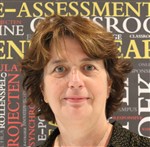
Liesbeth van de Grint
Liesbeth van de Grint works at Utrecht University at the Centre for Teaching and Learning as an educational advisor. In 1981 she started her career as a teacher in medical biology at several Universities of Applied Sciences. From 2000 - 2014 she worked at VU University Amsterdam, where she coordinated the use of IT in Education, at the faculty of Earth and Life sciences. In this position she worked as an Instructional Designer to help lecturers with student centered course design and curriculum renewal. She contributed to several national and international projects in Science Education and the use of IT.
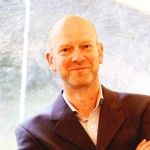
Johan Jeuring
Johan Jeuring is a professor in software technology for learning and teaching. He develops theories, formalisms, technology, and systems or games that support learning and teaching. He has developed learning environments for mathematics, programming, and logic, but also a serious game for practicing communication skills. The overarching research question he investigates is: how can we determine what a student does in a learning environment, and how can we give feedback and hints?
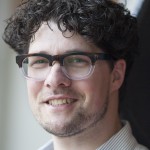
Marc van Mil
Marc van Mil is assistant professor Educational Innovations in Biomedical Sciences at the University Medical Centre Utrecht. He completed his PhD in science education at the Freundenthal Institute for Science and Mathematics Education. Currently he focusses on designing and evaluating innovative teaching approaches in the biomedical sciences bachelor’s program at Utrecht University.
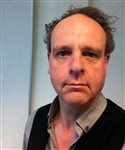
Gerard van der Ree
Gerard van der Ree teaches International Relations at University College Utrecht. Originally coming from the field of Latin American Studies, he has developed a profound interest in issues regarding interdisciplinarity, methodology and learning in university education. He has been using simulations in his classes for years, exploring with his students the learning that comes out of playing ‘life-like’ games. Additionally, he is interested in the role fiction plays in social sciences research, given that social science theories give us an untrue and simplified, yet helpful account of reality – just as most fiction would do. He is currently working on a book exploring playing games, learning, and transcending the boundaries between fact and fiction.
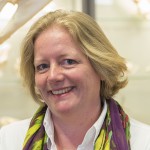
Benedikte Sam
Benedikte Sam is policy officer for education at the faculty for veterinary medicine and involved in projects sponsored by the Universitair Stimuleringsfonds Onderwijs (USO). She has a long standing interest in innovation in education and ample experience in simulations (Model United Nations, Model Europe). Combined with nowadays technologies, simulations and gaming create great ways for students to learn and experience, in addition to the traditional ways.

Stephanie de Smale
Stephanie is a PhD candidate from the department of media and culture studies at Utrecht University. Her project ‘Conflicting Patterns: How Game Design influences War Representation’ analyses digital games and contemporary conflict, and combines approaches from software studies, game studies, and conflict studies. Her research is part of the NWO funded ‘Graduate Programme Game Research,’ a computer science/humanities collaboration. She is part of the practice-based research project simulations and games in academic education and the international Erasmus+ project Go Go Gozo, which investigates the role of play and mobile mapping in field research. Her interdisciplinary background is in communication and (new) media studies, specializing in: games and play, design, politics, ethnography, and violent conflict.
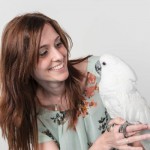
Yvonne van Zeeland
Yvonne van Zeeland (DVM, MVR, PhD, Dip. ECZM-Avian, Dip. ECZM-Small mammal, CPBC) works as an assistent-professor at the departement of Clinical Sciences of Companion Animals (faculty of Veterinary Medicine). Within the project Games and Simulations and based on her expertise in (education related to) clinical reasoning, Yvonne is responsible for the development of a game with which (veterinary) students can further develop and practice their clinical reasoning skills.

